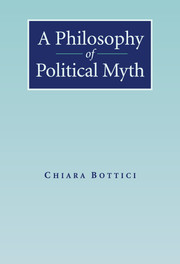1 - Mythos and Logos
Published online by Cambridge University Press: 24 July 2009
Summary
Mythos is a Greek word which originally meant “word, speech”. According to certain etymologists, it derives from a popular expression constituted by the onomatopoeic sound mu- (the sound that we produce with a closed mouth), and the common suffix -thos. In the Homeric poems, mython eeipe is, for instance, the standard expression used to mean “he or she said”, without adding any further connotations (Tebben 1994: 902; 1998: 1155). In these poems, the primary meaning of the term is that of “word, speech”, even though, as secondary meanings, the term is used in the sense of “public speech”, and also “dialogue, conversation” or “tale, narration” (Liddell, Scott, and Stuart 1968: 1151).
By the time of the composition of the Homeric poems – a time that most interpreters place around the eighth century bc, the semantic area of the Homeric mythos corresponded to the area that would later be covered by the term logos. Indeed, whereas the term logos is almost absent in the Homeric poems – there are only two occurrences, one in the Iliad (XV, 393) and one in the Odyssey (I, 56) – the term progressively came into common usage up to a point when it took the semantic place once occupied by mythos. At the same time, mythos began to express the additional meaning of “tale”.
- Type
- Chapter
- Information
- A Philosophy of Political Myth , pp. 20 - 43Publisher: Cambridge University PressPrint publication year: 2007

